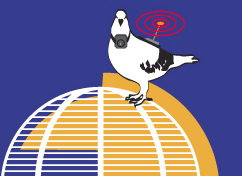organised networks, distributive education, new institutional forms, collaborative transdisciplinary practices This paper describes and analyses the emergence of "organised networks" as new institutional forms. Organised networks, in contrast to "networked organisations" (universities, corporations, government, even contemporary art institutions), are distinct for the ways in which the organisation of social relations is immanent to the media of communication. The paper considers some of the ways in which organised networks facilitate the communication and production of educational resources across peer-to-peer, transdisciplinary social-technical networks.
Abstract This paper describes and analyses the emergence of "organised networks" as new institutional forms. Organised networks, in contrast to "networked organisations" (universities, corporations, government, even contemporary art institutions), are distinct for the ways in which the organisation of social relations are immanent to the media of communication. The paper considers some of the ways in which organised networks facilitate the communication and production of educational resources across peer-to-peer, transdisciplinary social-technical networks. Keywords organised networks, distributive education, new institutional forms, collaborative transdisciplinary practices Full description The network models of sociality made possible by information and communication technologies (ICTs) has resulted in new forms of social-technical systems, or what I am calling emergent institutional forms of "organised networks". While these networks can be called institutional forms insofar as they have a capacity to organise social relations, they are radically dissimilar to the moribund technics of modern institutional forms such as government, union and firm whose logic of organisation is predicated on vertical integration and representative tenets of liberal democracy. Such dynamics are profoundly unsuited to the collaborative and distributive culture of networks peculiar to digital communications media and their attendant socialities. Despite the reform agendas of universities in advanced economies over the past 15-20 years, their efforts at adapting to information economies and networked socialities have proven to be largely ineffective in dealing with the challenge of innovation and problematic of contingency due to the predominant adherence to the strictures of intellectual property regimes coupled with cumbersome bureaucratic systems. This paper investigates emergent social-technical dynamics of communication, production and organisation in the network cultures of the education system. The focus is to both analyse and invent new institutional forms that better enable the possibility of sustainability and security in a global information environment that is defined by uncertainty. Establishing mechanisms that distribute education resources common to networks is of central importance. Such an undertaking requires a transdisciplinary, distributive and collaborative institutional form - this form is called the organised network. |
